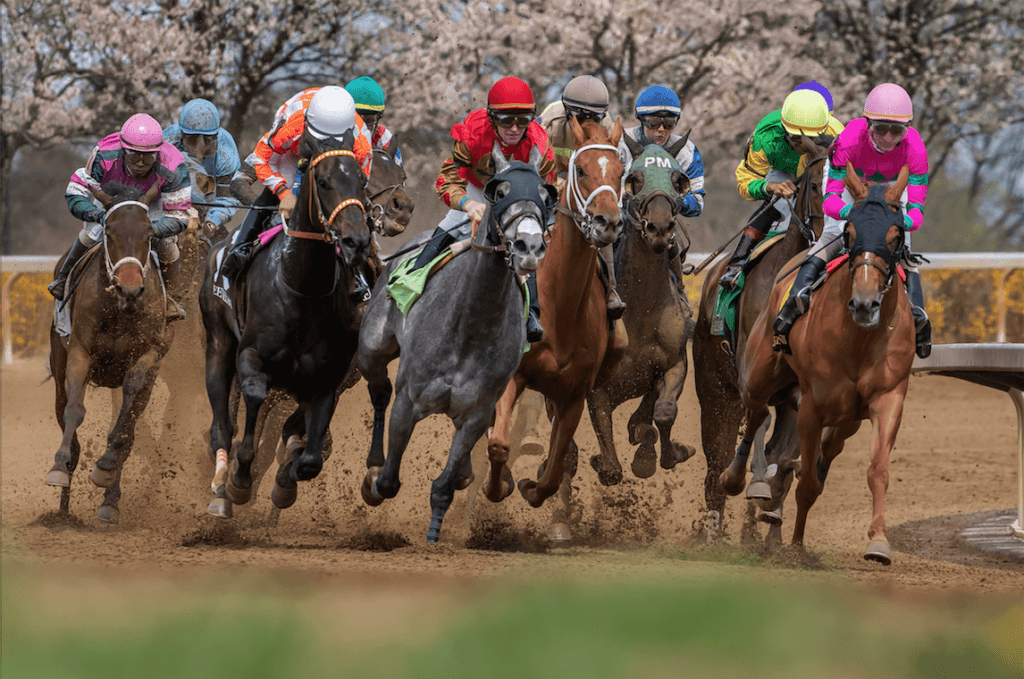Kentucky Horse Racing Commission Passes Race-Day Lasix Ban for 2-Year-Olds in 2020, Stakes Runners in 2021
Posted on: December 9, 2019, 09:51h.
Last updated on: December 10, 2019, 07:51h.
The Kentucky Horse Racing Commission (KHRC) approved new medication reforms on Monday that were backed by a number of industry stakeholders nationwide with an eye toward bolstering safety in the sport.

Among the biggest measures was the outright banning of the race-day administration of Lasix in all 2-year-olds starting next month. By 2021, the race-day ban would extend to all horses competing in stakes races. Older horses running in claiming races and allowances could still receive the drug, used primarily to stop horses from bleeding during competition.
The move came two weeks after the Kentucky Equine Drug Research Council approved the Lasix recommendation
The calls for the ban come after more than three dozen horses perished at Santa Anita over a 10-month span. While there have been concerns about track conditions at the California track, it’s also led to a discussion among racing officials about other steps that could be taken to prevent injuries and fatalities.
While it was reviewing track conditions and the reports on deaths back in March at Santa Anita, The Stronach Group, which owns the track, announced it would ban race-day medication at Santa Anita and Golden Gate Fields.
Coalition Formed for Safety
Last month, Kentucky-based Churchill Downs Inc., TSG, the New York Racing Association, and others announced the formation of the Thoroughbred Safety Coalition. The purpose behind the coalition is to increase transparency and create a unified set of regulations, such as the drug laws passed Monday by the KHRC.
Today, the KY Horse Racing Commission adopted new medication reforms, including ones that double the pre-race withdrawal time for corticosteroids & NSAIDS and eliminate the use of bisphosphonates,” Lexington, Ky-based Keeneland Association, another coalition member, posted on Twitter Monday.” We applaud these efforts & will continue work to make our sport safer.”
The coalition is also pushing for a universally applied rule regulating the use of the riding crop. The California Horse Racing Board is expected to take up that matter at its scheduled board meeting on Thursday.
Outside Groups, Lawmakers Involved
Industry stakeholders aren’t the only ones getting involved in racing reforms.
Animal welfare organizations, such as PETA and the Humane Society of the United States (HSUS), have called for changes to be made and for findings to be made public in the investigations behind dozens of deaths in California and elsewhere.
Lawmakers have been engaged, too. US Reps.Paul Tonko (D-NY) and Andy Barr (R-Ky.) filed the Horseracing Integrity Act back in March. The bill, which also has a companion bill in the US Senate, would nationalize regulations for the sport, rather than allowing each state to implement its own guidelines.
Currently, Tonko and Barr have 205 sponsors, which is 74 more than sponsored the 2017 version of the bill. Counting themselves and their sponsors, Tonko and Barr would only need 10 more votes to ensure their bill passes the House.
A group of industry insiders and animal welfare groups have created the Coalition for Horse Racing Integrity to fight for the passage of Tonko and Barr’s legislation. Coalition members include Keeneland, HSUS, The Jockey Club, and the Thoroughbred Owners and Breeders Association.
Related News Articles
Nebraska Horsemen Plead With State for Historical Racing Machines
California Horse Racing Board Backs Tighter Restrictions on Crop Use by Jockeys
Most Popular
Las Vegas Overstated F1 Race’s Vegas Impact — Report
Vegas Strip Clubs Wrestle in Court Over Animal Names
Most Commented
-
End of the Line for Las Vegas Monorail
— April 5, 2024 — 90 Comments -
Mega Millions Reportedly Mulling Substantial Ticket Price Increase
— April 16, 2024 — 6 Comments -
Long Island Casino Opponents Love New York Licensing Delays
— March 27, 2024 — 5 Comments -
Nearly Abandoned Mall Outside Vegas Soon to Have Only One Tenant
— March 12, 2024 — 5 Comments
















Last Comment ( 1 )
I think is barbaric to allow a horse to bleed in a race so you can feel holier than thou, the question is not if a horse is going to bleed the question is when.